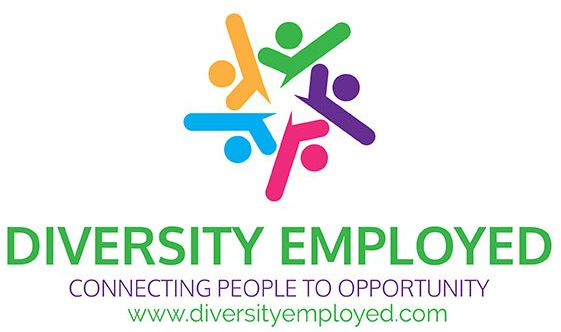Closing the Diversity Gap in Digital Marketing
By Krista Pouncy-Dyson
Founder of DiversityEmployed.com
Published July 29, 2024 at 8:01 a.m.
With a quarter-century of experience in digital advertising, I've seen firsthand how a lack of diversity can limit productivity and client reach. Despite ongoing efforts, the digital marketing industry still grapples with DEI. Only about 12% of U.S. Chief Marketing Officers come from minority backgrounds. This isn't just a
statistic; it's a clear call to action.
In our rapidly advancing digital age, the importance of diversity in shaping the marketing landscape cannot be overstated. With the rise of sophisticated technology and the expansive internet reach, businesses have unprecedented opportunities to connect with a global audience. However, by fully embracing diversity in digital marketing, their messages may stay consistent, leading to exclusion and missed opportunities. On the other hand, by harnessing the power of diversity, businesses can unlock a wealth of untapped potential, leading to growth and success.
Creating Inclusive and Engaging Campaigns: Integrating diversity into digital marketing is paramount to creating campaigns that are inclusive, relevant, and engaging for a broad spectrum of audiences. By incorporating varied voices, perspectives, and experiences, businesses ensure that different communities feel recognized, valued, and heard. Showcasing a diverse range of individuals in advertisements helps challenge stereotypes, promote inclusivity, and foster a sense of belonging among customers.
Cultural Relevance and Audience Connection: Cultural relevance is a crucial component of diversity in digital marketing. A diverse marketing team, made up of individuals from various backgrounds, understands the needs, preferences, and cultural nuances of various target audiences. This knowledge allows organizations to tailor their strategies, making their marketing efforts more effective. By figuratively speaking their customers' language, companies can forge genuine connections and build trust.
Language and Localization: Language and localization are vital in our increasingly globalized world. A bilingual team can create content that resonates with various audiences. This ensures that marketing messages are accurately translated, culturally sensitive, and impactful. Communicating in the customers' language demonstrates respect and appreciation for their diverse backgrounds.
Avoiding Stereotypes and Ensuring Sensitivity: Avoiding stereotypes and showing sensitivity are essential in diversity-focused digital marketing. A diverse team offers valuable insights, helping companies avoid pitfalls such as cultural appropriation, stereotyping, or insensitive portrayals. Incorporating diverse perspectives makes campaigns more authentic, respectful, and inclusive, fostering positive customer connections.
Expanding Market Reach and Customer Base: Moreover, embracing diversity in digital marketing opens doors to new markets and expands customer bases. Companies can tap into previously unexplored markets by understanding and catering to diverse audiences, increasing brand awareness, market share, and revenue. Embracing diversity not only positions businesses as inclusive and forward-thinking but also empowers them to significantly impact the market, attracting a broader customer base and fostering brand loyalty.
Fostering Innovation and Creativity: Diversity in digital marketing fosters innovation and creativity, leading to fresh ideas and approaches. Diversity yields creativity! By design, diversity of thought makes marketing campaigns more captivating, impactful, and memorable. The blend of different perspectives sparks creativity, resulting in groundbreaking strategies that stand out.
Building a Positive Brand Reputation: Inclusive marketing contributes to a positive brand reputation. Customers appreciate and support companies that prioritize diversity and inclusivity. Highlighting diversity in marketing builds trust, loyalty, and a positive brand image. Inclusivity becomes a defining characteristic of the brand, resonating with customers who share these values creating an impactful statement.
Elevating Equity: People love to align with companies that represent them and their beliefs. Organizations prioritizing Diversity, Equity, and Inclusion (DEi) recognize the importance of representation in front of and behind the camera.
Bringing Diversity: Chief Marketing Officers (CM Os), as the customer's primary contact, should continually integrate the needs of underrepresented communities into their organizations.
Mirror Your Market: Teams that mirror the diversity of the communities they serve help to unite brands and consumers.
Make Your Commitments Measurable: To avoid perceptions of insincerity, DEI goals must yield tangible, measurable outcomes. This includes establishing metrics for diversity in hiring, retention, and brand messaging.
Diversity in digital marketing is essential for creating inclusive campaigns and offers numerous benefits to businesses. By embracing diversity, companies can reach a broader audience, foster innovation, and cultivate a positive brand reputation. Organizations need to recognize the significance of DEI and reflect it in their digital marketing strategies. With diversity as the foundation, businesses can build a genuinely inclusive, representative, and resonant marketing ecosystem.
Krista Pouncy-Dyson is the founder of DiversityEmployed.com and managing principal for
Performance First Digital, a marketing agency in New Orleans. You can connect with the author on
LinkedIn.
Diversity in Marketing
Authentic Marketing Is Crucial
Download our free whitepaper, "Breaking Down Barriers: Addressing the Diversity Gap in Digital Marketing." Inside, you'll find our pathway to success, including Cultural Relevance, Audience Connection, Ensuring Sensitivity, and Elevating Equity.
Connecting Hiring & Marketing
Diversifying Marketing Staff Can Produce More Inclusive Ads
Historically, white men have dominated the advertising profession, only hiring and promoting people who look like them. This has resulted in a lack of diversity among advertising professionals.

